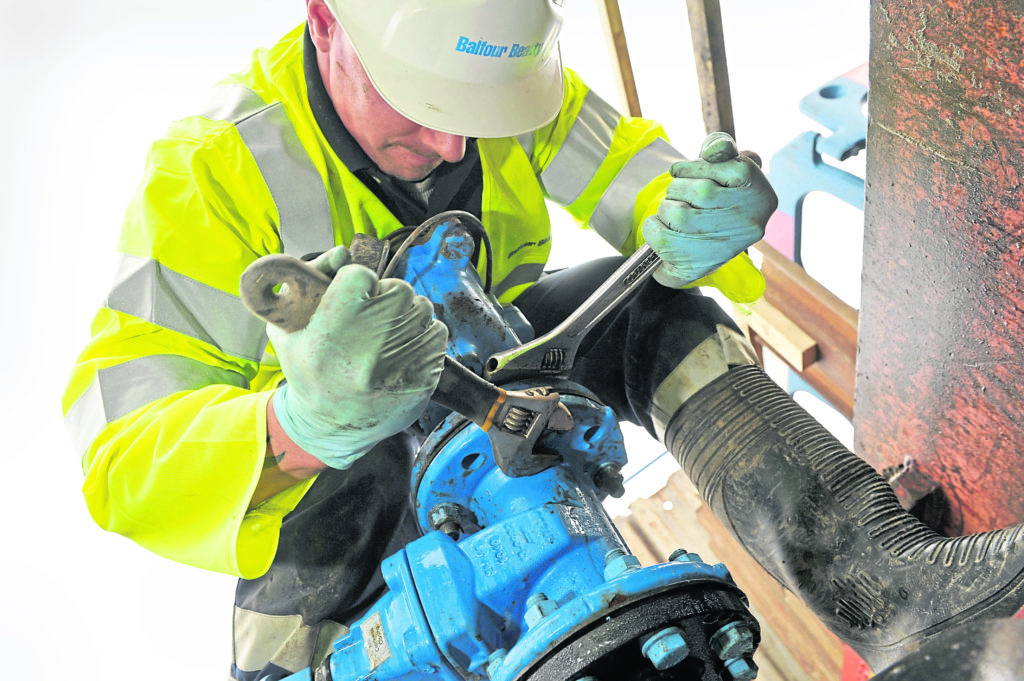
Infrastructure firm Balfour Beatty revealed a £29 million Aberdeen city bypass road hit to its 2018 results yesterday.
The company ended up as one of just two contractors in the consortium building the £1 billion-plus road, alongside Morrison Construction, after Carllion went bust.
FTSE 250-listed Balfour Beatty reported a 5% increase in pre-tax profits to £123 million last year.
Revenue slipped by 5% to £7.8bn, which was partly due to the firm cutting back on less profitable work.
Reporting on the Aberdeen Western Peripheral Route (AWPR), Balfour Beatty said it faced “schedule slippage and cost increases”.
It added: “In the year, Balfour Beatty recognised an additional £29m loss on the AWPR project.
“A third of this charge (£10m) has been recognised in non-underlying items as this reflects the additional loss that the group has incurred in fulfilling Carillion’s obligations on the contract.
“The final section of the AWPR project was fully open to traffic on February 19 2019, with the final financial out-turn of this contract dependent upon the result of ongoing claims discussions.”
Balfour Beatty said a “higher quality” order book increased 11% to £12.6bn, with its UK and US construction arms reporting underlying margin growth in line with industry standards in the second half of the year.
Construction services profits increased 32% and gross debt reduced by over 40% as it repaid £231m of convertible bonds.
Chief executive Leo Quinn, who has been reducing costs and trying to raise productivity, hailed the group’s “Build to Last” transformation programme.
“These results demonstrate the value being created through Build to Last,” he said adding: “We continue to strengthen the group and meet our targets.
“The businesses are back at industry standard margins, underpinned by a strong balance sheet and asset base.
“But Balfour Beatty’s transformation goes well beyond resolving the issues of forced growth.
“We have relentlessly invested in capability and leadership to forge a culture which provides sustainable competitive advantage through standardisation of our systems and processes, on a reducing overhead base.”
The group said it was confident of performing in line with market expectations for 2019.
Recommended for you
